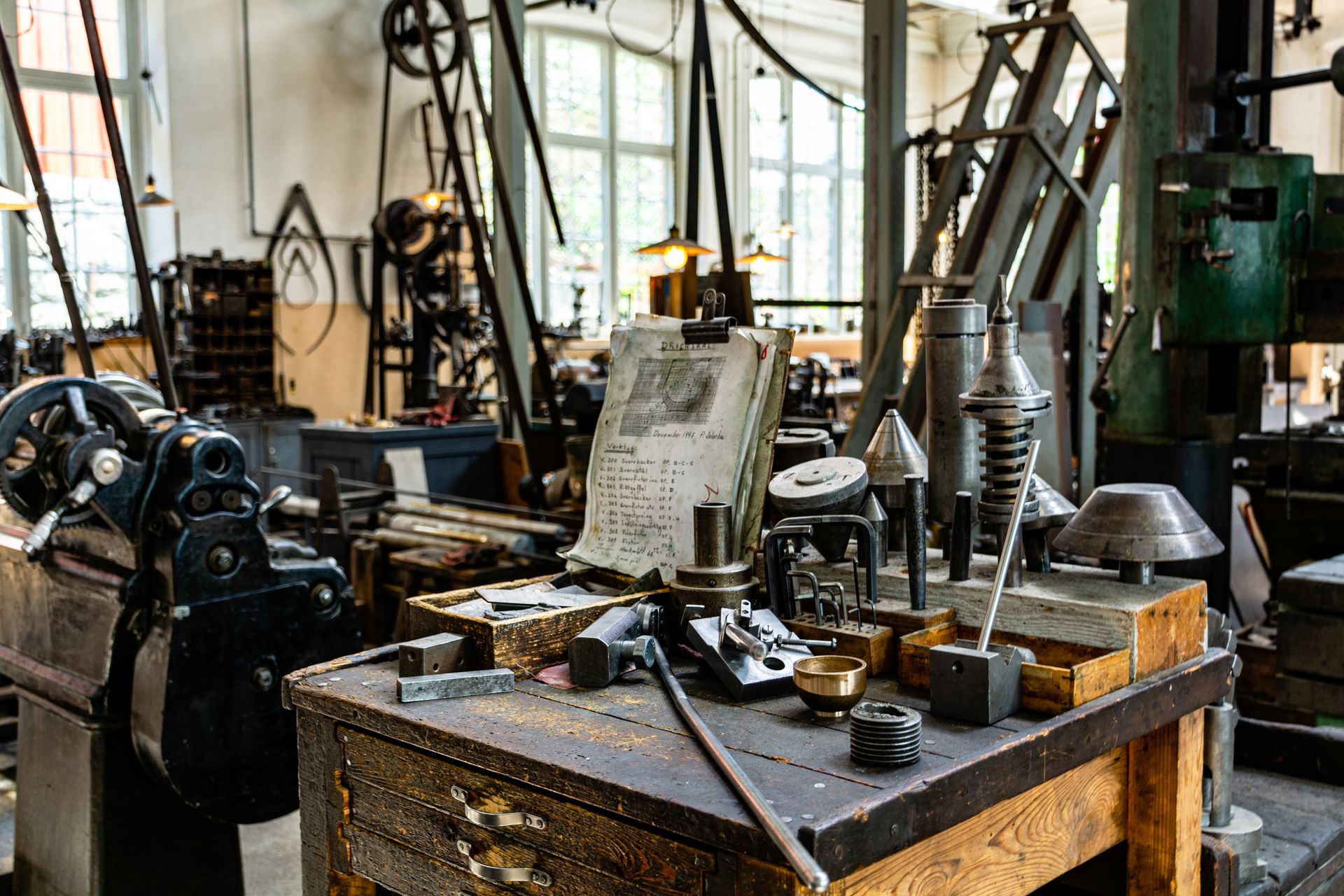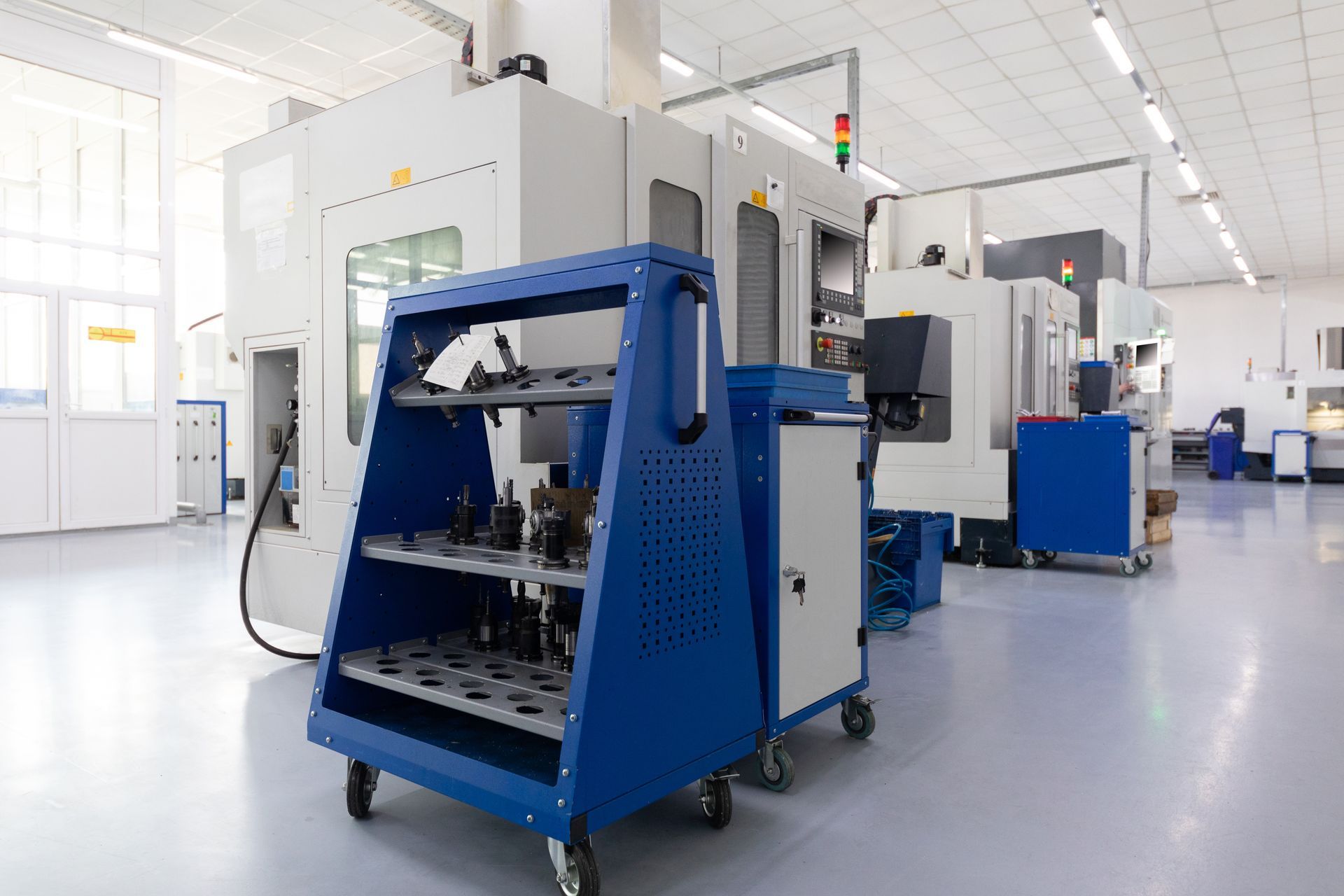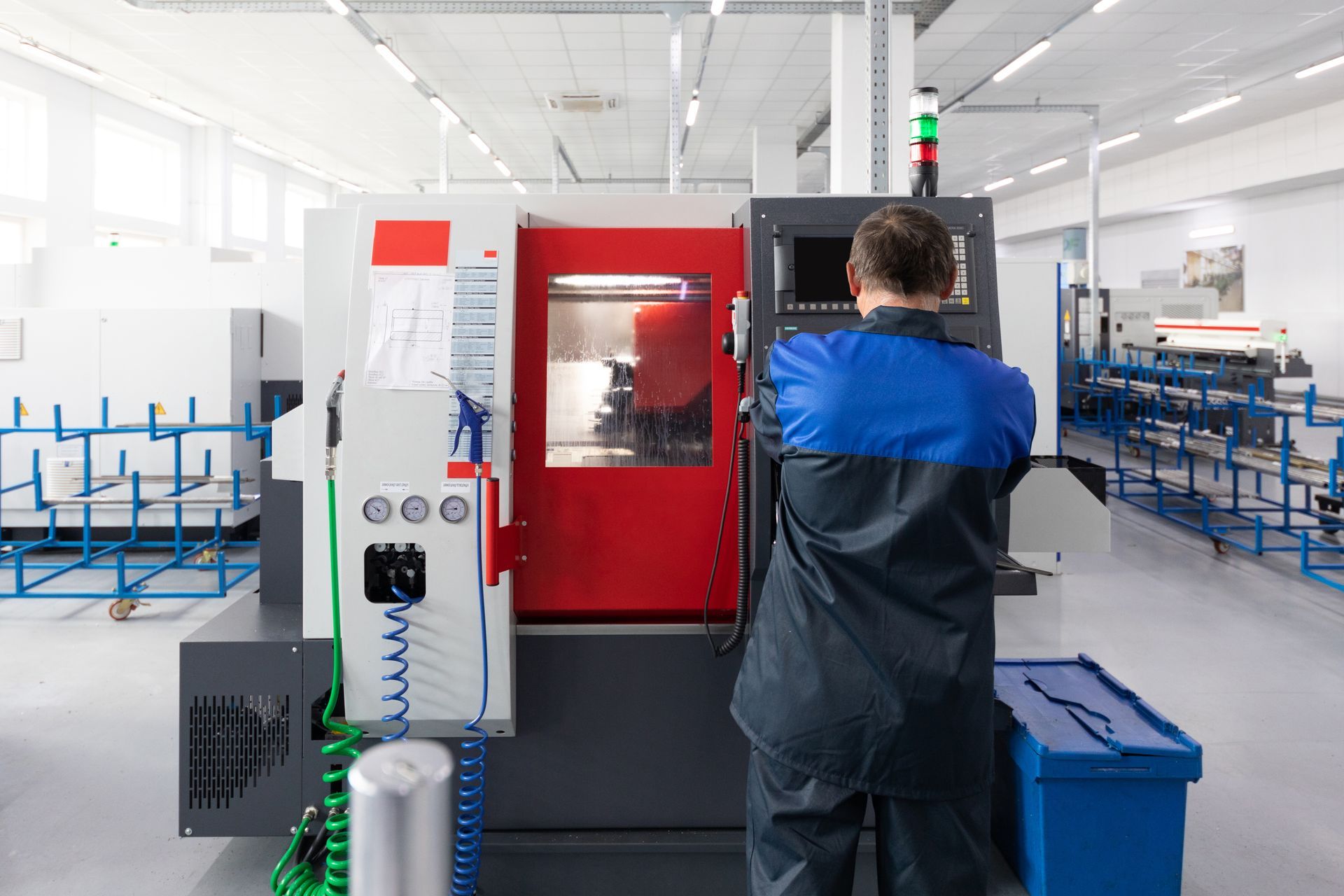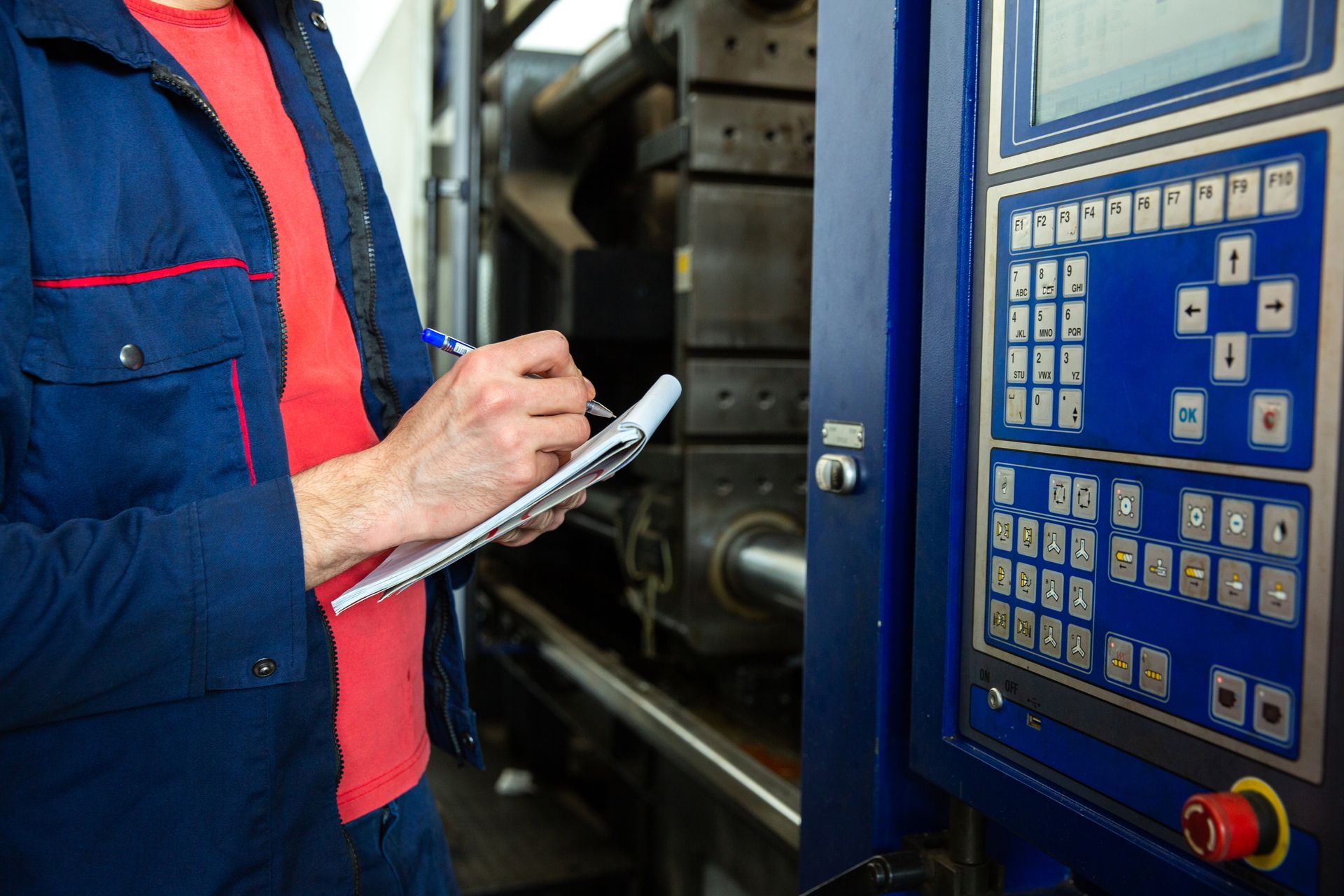Machine Shop Insurance in California
Index
Understanding Machine Shops Insurance
California's Specific Requirements for Machine Shops Insurance
Types of Coverage for Machine Shops in California
Cost of Machine Shops Insurance in California
Choosing the Right Insurance Provider in California
Contact Us
Phone
886-226-4436
Location
9340 Bolsa Ave, Westminster, CA 92683
Machine shops are important establishments that deal with the manufacturing and repair of various machinery and tools. These shops are prone to several risks, including property damage, equipment breakdown, and liability claims. To protect themselves against these risks, machine shop owners in California need to have
comprehensive insurance coverage. In this article, we will explore the key aspects of machine shops insurance in California, including the basics of insurance coverage, California's specific requirements, different types of coverage available, the cost of insurance, and tips for choosing the right insurance provider.
Understanding Machine Shops Insurance
Machine shops insurance provides coverage for the unique risks faced by these businesses. Whether it's a small machine shop or a large manufacturing facility, having the right insurance coverage is vital. The insurance policies for machine shops are designed to protect the physical assets of the business, provide liability coverage, and safeguard against potential financial losses arising from accidents, product defects, or property damage.
Machine shops are dynamic environments where precision and efficiency are paramount. These establishments are equipped with state-of-the-art machinery, tools, and equipment that are essential for the manufacturing and repair of various components. However, with the complexity of the operations involved, there are inherent risks that machine shop owners must address.
The Basics of Machine Shops Insurance
Machine shops insurance typically includes two main types of coverage: property insurance and liability insurance. Property insurance covers the building, machinery, tools, and equipment used in the day-to-day operations of the machine shop. It provides financial protection in the event of fire, theft, vandalism, or natural disasters. The insurance not only covers the cost of repairing or replacing damaged equipment but also helps in mitigating the financial impact of business interruption.
Liability insurance, on the other hand, protects the machine shop owner against claims of bodily injury or property damage caused by the operations of the business. In a fast-paced environment like a machine shop, accidents can occur, and even the most skilled workers can make mistakes. Liability insurance provides coverage for legal expenses, medical costs, and compensation for injured parties, ensuring that machine shop owners are protected from potential lawsuits that could cripple their business.
Additionally, machine shops insurance may also include coverage for business interruption, worker's compensation, and product liability. Business interruption coverage helps machine shop owners recover lost income and cover ongoing expenses in the event of a temporary shutdown due to a covered loss. Worker's compensation insurance provides financial support to employees who suffer work-related injuries or illnesses, covering medical expenses and lost wages. Product liability coverage protects machine shop owners from claims arising from defective products that cause harm or damage to customers.
Importance of Insurance for Machine Shops
Having insurance coverage is crucial for machine shops in California. Accidents can happen unexpectedly, and without proper insurance, machine shop owners may face significant financial losses that can jeopardize the business's future. Insurance provides financial protection against risks, such as property damage or liability claims, allowing machine shop owners to focus on their core operations without worrying about the potential financial burdens.
Moreover, machine shops insurance helps businesses comply with California's legal requirements. State regulations and guidelines govern the operation of machine shops, and insurance coverage is often mandatory to obtain and maintain the necessary licenses and permits. By having the appropriate insurance coverage, machine shop owners can ensure compliance with California's insurance laws and operate their businesses smoothly.
In conclusion, machine shops insurance is a critical component of risk management for these businesses. It provides comprehensive coverage for the physical assets, liability risks, and potential financial losses that machine shop owners may face. By investing in the right insurance policies, machine shop owners can protect their businesses, comply with legal requirements, and have peace of mind knowing that they are prepared for any unforeseen circumstances.
California's Specific Requirements for Machine Shops Insurance
Operating a machine shop in California comes with specific requirements regarding insurance coverage. It is essential for machine shop owners to understand these requirements and ensure compliance to avoid any legal issues.
When it comes to insurance coverage, California has specific regulations and guidelines that machine shop owners must follow. These regulations may vary based on the size, location, and nature of the machine shop. It is crucial to consult with an experienced insurance agent or broker familiar with California's regulations to determine the exact insurance requirements for the machine shop.
California's insurance laws are designed to protect both the machine shop owners and their employees. By complying with these laws, machine shop owners can ensure that they have the necessary coverage to safeguard their business and employees in case of any unforeseen events or accidents.
State Regulations and Guidelines
California's state regulations and guidelines for machine shop insurance are put in place to ensure the safety and well-being of all parties involved. These regulations take into account various factors such as the type of machinery used, the number of employees, and the potential risks associated with the machine shop's operations.
For example, if a machine shop uses heavy machinery that poses a higher risk of accidents or injuries, the state may require the shop to have higher liability coverage. This ensures that in the event of an accident, the machine shop has enough insurance coverage to compensate any affected parties.
Additionally, California may also require machine shops to have workers' compensation insurance to protect their employees. This type of insurance provides coverage for medical expenses and lost wages in case an employee gets injured while on the job.
Compliance with California's Insurance Laws
Complying with California's insurance laws is not only necessary but also beneficial for machine shop owners. Non-compliance can result in penalties, fines, or even the suspension of the machine shop's operations. Machine shop owners should ensure they have the required coverage levels and meet any additional criteria set by state authorities.
By having the appropriate insurance coverage, machine shop owners can protect their business from potential financial losses. In the event of a lawsuit or property damage, insurance coverage can help cover the costs of legal fees, repairs, or even replacement of machinery.
Moreover, having comprehensive insurance coverage can also enhance the machine shop's reputation and credibility. Customers and clients are more likely to trust a machine shop that has proper insurance coverage in place, as it demonstrates the shop's commitment to safety and responsible business practices.
In conclusion, machine shop owners in California must familiarize themselves with the specific insurance requirements set by the state. By complying with these regulations, machine shop owners can protect their business, employees, and reputation, ensuring a smooth and successful operation.
Types of Coverage for Machine Shops in California
Machine shop owners in California have different options when it comes to insurance coverage. Understanding the types of coverage available can help them make informed decisions based on their specific needs and budget.
Property Insurance for Machine Shops
Property insurance is a fundamental coverage for machine shops. It protects the physical assets of the business, including the building, machinery, equipment, and inventory, against risks such as fire, theft, vandalism, or natural disasters. Property insurance provides financial compensation to repair or replace damaged or destroyed assets, ensuring the continuity of the machine shop's operations.
Additionally, machine shop owners should consider adding coverage for equipment breakdown. This coverage protects against the financial losses associated with the sudden breakdown of machinery or equipment, including repair or replacement costs and lost income during the downtime.
Moreover, property insurance can also include coverage for business interruption. This type of coverage provides compensation for lost income and ongoing expenses if the machine shop is unable to operate due to a covered event. It helps the business stay afloat during the recovery period and ensures that employees can continue to receive their salaries.
Liability Insurance for Machine Shops
Liability insurance is another essential coverage for machine shops. It provides protection against claims of bodily injury or property damage caused by the machine shop's operations. Liability claims can arise from accidents, defective products, or negligence on the part of the machine shop or its employees. Having liability insurance safeguards the machine shop owner against potential financial liabilities and costly legal proceedings.
Furthermore, machine shop owners should consider additional liability coverages, such as product liability and completed operations coverage. Product liability coverage protects against claims arising from defective products manufactured or sold by the machine shop, while completed operations coverage provides protection for claims arising after the completion of a project or service.
Additionally, machine shop owners may want to consider general liability insurance, which covers a wide range of risks that can occur in the day-to-day operations of the business. This coverage can protect against claims of bodily injury, property damage, personal injury, and advertising injury. It provides a comprehensive safety net for the machine shop owner, ensuring that they are protected from various potential liabilities.
Moreover, machine shop owners should also consider professional liability insurance, also known as errors and omissions insurance. This coverage protects against claims of professional negligence, errors, or omissions that may arise from the professional services provided by the machine shop. It is particularly important for machine shops that offer design or engineering services, as any mistakes or oversights in these areas can result in significant financial losses for clients.
In conclusion, machine shop owners in California have several types of insurance coverage to consider. Property insurance protects the physical assets of the business, while liability insurance safeguards against potential claims and legal liabilities. By understanding the different types of coverage available, machine shop owners can make informed decisions to protect their businesses and ensure their long-term success.
Cost of Machine Shops Insurance in California
The cost of machine shops insurance in California can vary based on several factors. Understanding these factors and their impact on insurance premiums can help machine shop owners make informed decisions and manage their insurance costs effectively.
Factors Influencing Insurance Premiums
Several factors influence the cost of machine shops insurance, including the size and nature of the machine shop, the location of the business, the value of the insured assets, the limits and deductibles chosen, the claims history of the business, and the coverage options included in the policy. Machine shop owners should work closely with insurance agents or brokers to assess these factors and determine the appropriate coverage levels to meet their needs while managing insurance costs.
Ways to Reduce Insurance Costs
Although insurance is necessary for machine shops, there are ways to reduce insurance costs without compromising coverage. Machine shop owners can implement risk management strategies, such as installing security systems, maintaining proper safety protocols, and investing in preventive maintenance for machinery and equipment. Additionally, considering higher deductibles and exploring discounts and incentives offered by insurance providers can help reduce insurance premiums.
Choosing the Right Insurance Provider in California
Selecting the right insurance provider is crucial for machine shop owners in California. A reliable and reputable insurance provider can offer comprehensive coverage, competitive premiums, and excellent customer service.
Evaluating Insurance Providers
When evaluating insurance providers, machine shop owners should consider factors such as the provider's experience and expertise in insuring machine shops, the financial stability of the company, the variety of coverage options available, and the reputation of the provider in the industry. It is essential to review the terms and conditions of the insurance policies, including coverage limits, deductibles, and exclusions, to ensure they align with the unique needs of the machine shop.
Tips for Selecting the Best Insurance Plan
Machine shop owners can follow some useful tips to select the best insurance plan for their specific needs. They should compare quotes from multiple insurance providers to get a better understanding of the pricing and coverage options available in the market. Additionally, seeking recommendations from other machine shop owners or industry professionals can provide valuable insights into the reputation and reliability of the insurance providers under consideration.
In conclusion, machine shops in California need to have adequate insurance coverage to protect themselves against various risks. Understanding the basics of machine shops insurance, complying with California's specific requirements, choosing the right coverage types, managing insurance costs, and selecting the best insurance provider are vital aspects for machine shop owners to consider. By being well-informed and proactive in their approach to insurance, machine shop owners can mitigate potential risks and ensure the long-term success of their businesses.
How Much is Insurance for a Machine Shop?
The cost of insurance for a machine shop depends on several factors, including the size of your operation, the type of work you do, and your location. On average, machine shop insurance can range from a few hundred dollars annually for small operations to several thousand dollars for larger, more complex businesses. To get an accurate quote, it’s best to speak with an experienced insurance provider who can assess your unique needs.
What Insurance Do You Need for a Shop?
Describe the item or answer the question so that site visitors who are interested get more information. You can emphasize this text with bullets, italics or bold, and add links.
Every machine shop should have a variety of insurance policies to cover different aspects of the business. Common types of insurance include:
- General Liability Insurance: Protects against accidents, injuries, or damages that occur on your premises or as a result of your operations.
- Property Insurance: Covers your physical assets, including machines, tools, and inventory, against risks like fire, theft, or vandalism.
- Workers' Compensation Insurance: Required in most states, it covers medical expenses and lost wages for employees injured while working.
- Equipment Breakdown Insurance: Covers repairs or replacement of machinery if it breaks down due to mechanical failure.
- Commercial Auto Insurance: If your business uses vehicles for deliveries or other purposes, this type of insurance is essential.
What Insurance Do You Need for Vending Machines?
If you operate vending machines, it’s important to have proper insurance coverage. The types of insurance you may need include:
- General Liability Insurance: Covers injuries or damages that could occur from the use of your vending machines.
- Property Insurance: Protects the value of the vending machines, especially in the event of theft, vandalism, or damage.
- Business Interruption Insurance: Provides compensation for lost income if your machines are temporarily out of service due to damage or theft.
How Much Does a $1,000,000 Liability Insurance Policy Cost?
The cost of a $1,000,000 general liability insurance policy can vary based on several factors, including the type of business, location, and risk factors. For a machine shop, the cost typically ranges from $500 to $2,500 annually, depending on the specific details of the business.






